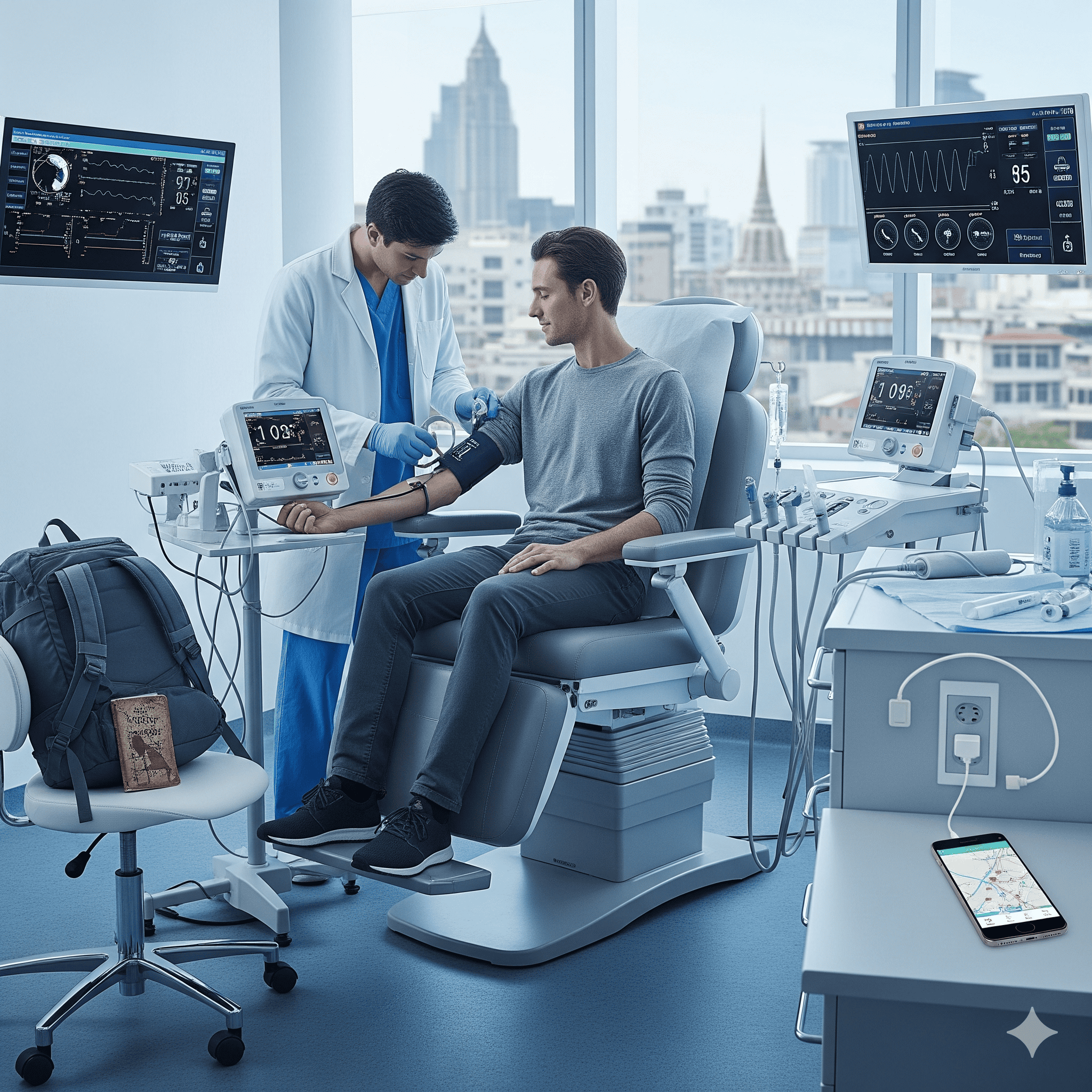AI in Medical Tourism Master Degree Best Move for Your Career
Medical tourism has blended healthcare with hospitality throughout history. This unique combination creates opportunities that led to specialized medical tourism degree programs. With use of AI in Medical Tourism the field now reaches way beyond traditional healthcare. It includes everything from luxury spa experiences to surgical tourism management.
Tourism degree programs have seen remarkable development, especially when you have a medical tourism management focus. Students now receive complete training through practical internships and intensive language studies. The programs offer flexible learning options that adapt to different student needs.
The Booming Medical Tourism Industry
Medical tourism is booming as more patients look for affordable, quality healthcare in other countries. With the availability of AI in Medical Tourism it is easier than ever to provide the best quality products to your customers.
Current market size and growth projections
Each year, more than 14 million people worldwide choose to get their medical care abroad. Cost savings drive this remarkable growth. Treatments in developing countries often cost 55-70% less than in America and Europe. A perfect example is angioplasty – while it costs $55,000-$57,000 in the US, patients pay just $2,500-$3,500 in Malaysia. The market is expected to grow even more till the 2030, with the help of new technologies and especially AI powered tools.
Why professionals with specialized degrees are in demand
This rapid industry growth creates a rising need for professionals who understand both healthcare and hospitality. No matter how great AI powered search is, it is not enough. The field’s complexity requires expertise in many areas – from clinical settings and medical tourism facilitation to insurance, hospitality, and marketing. On top of that, professionals must adapt to changing government policies, new destinations, emerging treatments, and evolving legal concerns.
The biggest challenge? Despite more internationally accredited medical facilities opening up, very few organizations have trained medical tourism professionals who can properly manage international patients.
Career Paths Unlocked by a Medical Tourism Degree
A medical tourism degree creates exciting career paths that combine healthcare, hospitality, and international business. Graduates can take advantage of this fast-growing industry in many unique ways.
Hospital and clinic international patient departments
Healthcare institutions now create dedicated international wings for foreign patients. At Baptist Health South Florida, International Patient Services Coordinators check insurance benefits, manage transfers, and handle admissions for international patients. These coordinators become the main contact point for visitors who need medical care. AdventHealth takes this further by offering international recruitment programs. They provide employer-paid immigrant visa sponsorship, competitive pay packages with a $2,000 original stipend, and a complete orientation through their Transcultural Assimilation Program.
Medical travel agencies and facilitators
Medical tourism managers handle travel plans and connect patients with healthcare providers. These professionals make between $3,000-$18,000 yearly based on their experience [8]. Medical travel specialists build customized plans that cover both medical needs and tourism activities. Medical Travel Professionals (CMTP) certification helps boost job prospects, career growth, earning potential, and networking opportunities.
Wellness tourism and spa management
The global medical spa market grew to $11.10 billion in 2017. Experts predict it will reach $27.60 billion by 2025, with a 12.2% yearly growth rate. This growth creates jobs for Wellness Program Coordinators who earn about $5,400 yearly. These coordinators develop health programs while spa managers run operations in hotels, resorts, cruise ships, and wellness centers. You’ll find opportunities in full-service spas, medical spas, and wellness facilities.
Healthcare marketing and patient experience
Healthcare marketing professionals create smooth brand experiences across digital and in-person channels. Companies that improved customer experiences saw their revenue grow up to 20% over five years. These specialists manage everything from digital strategy to patient engagement. About 81% of patients check doctor reviews even when they have referrals. Health Services Managers earn around $7,400 yearly. They keep up with healthcare regulations and work closely with medical staff and insurance companies.
What to Look for in Quality Tourism Degree Programs
Students must evaluate program offerings carefully to choose the right educational pathway. The programs must not only cover the basics, but offer more complex conceps like use of AI in medical tourism. Here are several key factors that set exceptional options apart from average ones.
Essential curriculum components
Quality programs provide specialized knowledge in healthcare management and tourism development. The ideal curriculum includes health tourism management, project management, AI skills, and health promotion. Top programs create what experts call the “tourism intelligence triangle”—training, research, and breakthroughs working together. Students should look for courses that cover medical travel coordination, cultural competency, and international healthcare operations to get complete preparation for industry needs. Master degree in Medical Tourism Management offered by bHTL International can be one of those.
Industry partnerships and internship opportunities
Strong industry connections make tourism degree programs stand out. Programs wthat can help students get hands-on experience with international healthcare initiatives, expose students to global health, medical tourism, and hospital consulting through real projects. The best programs (including the Master degree in HTL International) offer fully-funded internship opportunities across global health topics both internationally and domestically. These strategic collaborations are a great way to get practical experience that adds new dimensions to classroom work.
Online vs. on-campus options
Online learning gives students amazing flexibility—73% of students want fully online courses. Campus programs follow fixed schedules, while online options let students complete work at their own pace. Both formats deliver similar curricula in quality programs. HTL International school offers fulle online sef-study modality and hybrid on campus modality. On campus gives students possibility to be in face to face in Barcelona or connect virtually to the same class from anywhere in the world. Classes often stay small with just 16 students compared to other universities. Your learning style should guide your choice, as online programs need more self-motivation.
Conclusion
Medical tourism has become one of the ever-changing sectors in healthcare. It gives exceptional opportunities to professionals who have specialized education. This field combines great financial rewards with career paths that span from international patient departments to wellness tourism management.
Your success in grabbing these opportunities depends on quality education. The Master in Medical Tourism Management program gives you the skills in healthcare management, cultural competency, and international operations. Together with use of AI in Medical Tourism these are exactly what employers look for today.
People who get specialized education early have clear advantages as the industry grows. You can choose between online learning and hybrid on campus program. Your investment in medical tourism education puts you among the pioneers of an industry that’s changing how healthcare works globally.


